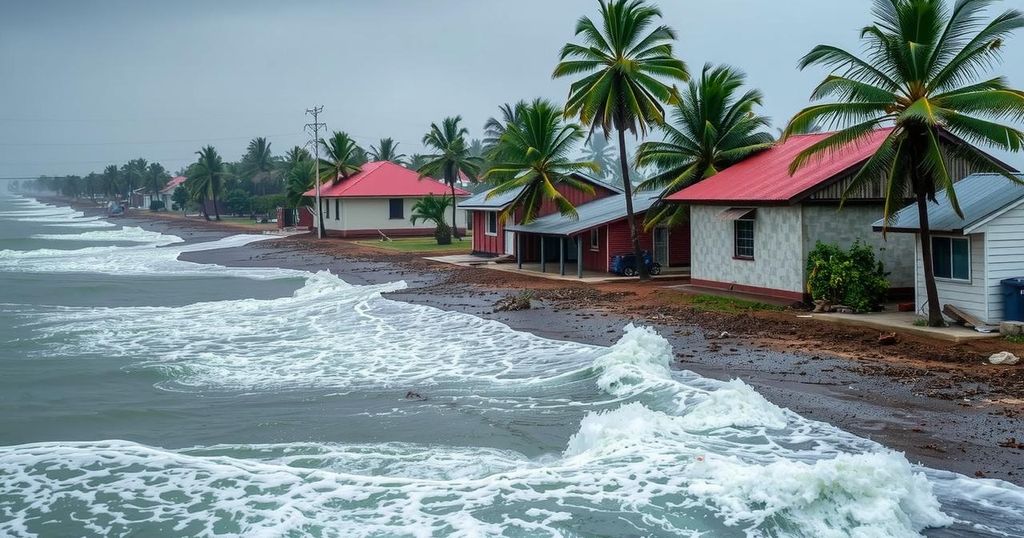Cyclone Chido’s Toll in Mozambique Escalates Amid Ongoing Crisis

Cyclone Chido has resulted in a significant increase in casualties in Mozambique, with the death toll reaching 75. The storm has devastated Cabo Delgado province, compounding challenges for residents already displaced by conflict. Rescue efforts have uncovered extensive destruction, indicating a growing humanitarian crisis exacerbated by climate change.
The recent devastation caused by Cyclone Chido in Mozambique has resulted in a death toll that has nearly doubled to 75, according to the government’s latest reports. This catastrophic event has severely impacted the Cabo Delgado province, already grappling with a prolonged insurgency that has displaced countless residents. Rescue teams have faced immense challenges reaching isolated areas due to washed-out roads, uncovering the extent of destruction along their way.
The cyclone struck Cabo Delgado earlier this week, bringing with it violent winds and torrential rains. As per Mozambique’s National Institute for Natural Disasters, the storm claimed the lives of at least 69 individuals in the province and left approximately 740 injured. Rescue efforts have revealed scenes of total devastation, especially in regions such as Mecufi, where many structures lay completely flattened.
“What you see is utter destruction,” observed Isadora Zoni, a reporting officer for the United Nations’ refugee agency, following her visit to the affected regions. Images depict scenes of buildings reduced to rubble and critical facilities like healthcare centers left in disarray. In addition to immediate fatalities and injuries, hundreds of thousands of individuals who previously fled their homes due to conflict now face exacerbated difficulties because of the cyclone.
The cyclone itself reached speeds of up to 115 miles per hour, comparable to a Category 3 hurricane in the Atlantic, prior to impacting Mozambique and subsequently moving inland into Zimbabwe. The United Nations refugee agency has warned that Cyclone Chido may indicate the onset of an intense rainy season that is likely to produce further destructive weather events. In light of previous storms, Mozambique has become increasingly vulnerable, with past cyclones such as Freddy and Gombe leaving significant casualties and displacement in their wake.
Mozambique, identified as one of the poorest nations and heavily affected by climate change, continuously faces the ramifications of increasingly severe weather patterns. Assessments from the U.N. suggest that numerous individuals, having already endured disruption from violence, are now confronted with additional challenges brought forth by climate-related disasters.
As this situation unfolds, the international community is urged to support ongoing relief efforts for the victims of Cyclone Chido and address the underlying issues of conflict and environmental vulnerability that plague the region.
Cyclone Chido has hit Mozambique during a critical time when the Cabo Delgado province is already reeling from a prolonged insurgency connected to groups backed by the Islamic State. This region has witnessed significant displacement, with hundreds of thousands seeking refuge due to violence. Coupled with this, Mozambique is one of the world’s most vulnerable nations to climate change, often suffering from severe storms and flooding during the rainy season. Previous cyclones have also resulted in similar devastating impacts, creating an ongoing humanitarian crisis in the country.
In summary, Cyclone Chido’s destruction in Mozambique has led to a tragic increase in the death toll to 75, compounding the already dire humanitarian situation in Cabo Delgado province. The storm has highlighted the urgent need for effective disaster response and the significance of addressing the interplay between climate change and persistent conflict. Such events underscore the importance of international aid and preventive measures to bolster resilience against future disasters.
Original Source: www.nytimes.com







